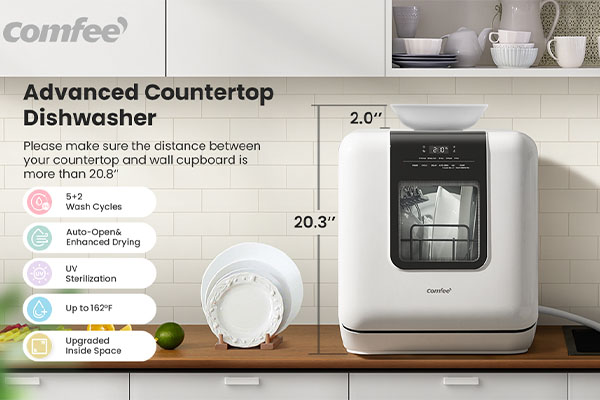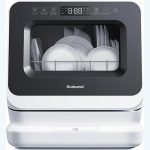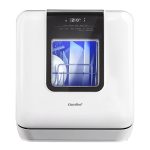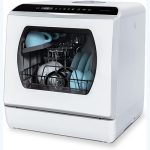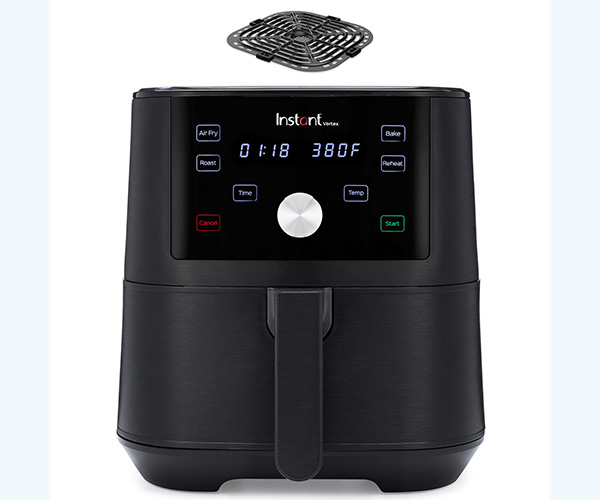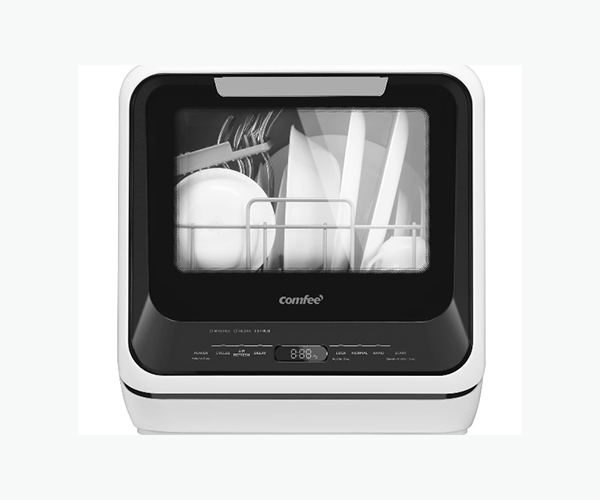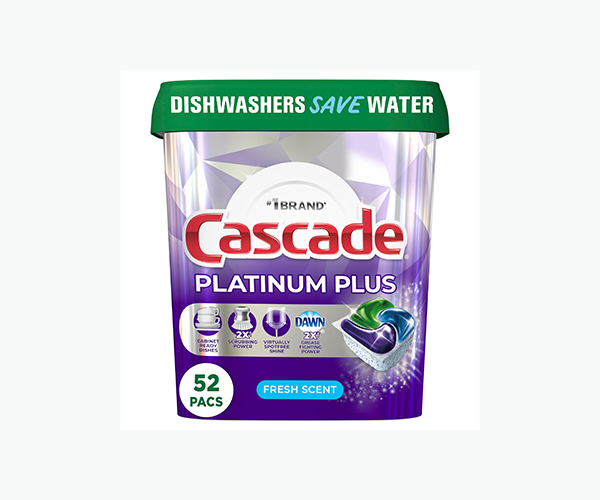Choosing the Best Dishwasher Cycle for Your Dishes
Introduction for dishwasher
Have you ever stood in front of your dishwasher, dishes in hand, utterly perplexed by the array of cycle options? I’ve been there. Last week, I was holding my grandmother’s delicate china plate, wondering if I should select ‘Heavy’ or ‘Delicate.’ It made me realize, choosing the right dishwasher cycle is not just about clean dishes; it’s about preserving them and being efficient.
In this comprehensive guide, we’re diving deep into the world of dishwashers, particularly focusing on the criterion dishwasher. We’ll explore its key features, dissect various cycle types, and discuss factors you should consider when selecting a cycle. Whether it’s tackling heavily soiled pots or ensuring your glassware remains spotless, this article has got you covered. So let’s break down the mystery of dishwasher cycles, debunk common myths, and share some insider tips for optimal dishwasher use.
Understanding Your Dishwasher
When it comes to understanding your dishwasher, particularly a criterion dishwasher, it’s crucial to get familiar with its unique attributes. This brand is known for its efficiency and advanced technology in the realm of kitchen appliances. Here’s what sets it apart:
- Innovative Wash Cycles: The criterion dishwasher boasts a variety of wash cycles tailored to different dishwashing needs, ensuring that whether you have lightly soiled glasses or heavily greased pans, there’s a perfect setting for it.
- Energy Efficiency: One of the standout features of the criterion dishwasher is its energy-efficient operation, which not only conserves water but also saves on your energy bills.
- Advanced Drying Technologies: Gone are the days of spotting and streaks. The criterion dishwasher utilizes advanced drying technologies to leave your dishes not just clean but also perfectly dry.
- User-Friendly Interface: With intuitive controls and easy-to-navigate menus, operating the criterion dishwasher is a breeze, even for those not tech-savvy.
- Smart Capabilities: In line with modern advancements, some models come equipped with smart features, allowing you to control and monitor your dishwasher remotely.
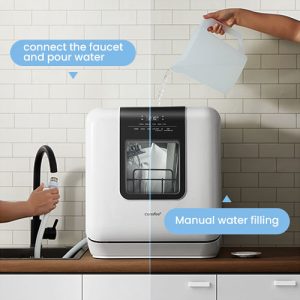
Types of Dishwasher Cycles
Knowing the different cycle options is important when it comes to dishwashing, especially when thinking about a criteria dishwasher. Let’s examine the most typical dishwasher cycle types:
- Normal Cycle
- Ideal for: Everyday dishes and moderately soiled loads.
- Pros: Balances between energy efficiency and cleaning power.
- Cons: May not handle heavily soiled items effectively.
- Heavy Cycle
- Ideal for: Pots, pans, and heavily soiled dishes.
- Pros: Provides intensive cleaning with higher water temperature and pressure.
- Cons: Longer duration and higher energy and water consumption.
- Eco Cycle
- Ideal for: Environmentally conscious users with normally soiled dishes.
- Pros: Uses less water and energy, reducing environmental impact.
- Cons: Longer cycle time and potentially less effective on tough stains.
- Glass Cycle
- Ideal for: Glassware and delicate items.
- Pros: Gentle wash and lower temperature to prevent damage.
- Cons: Not suitable for heavily soiled items.
- Quick Wash
- Ideal for: Lightly soiled dishes or when in a hurry.
- Pros: Faster cycle time for convenience.
- Cons: Not as thorough as longer cycles, less energy-efficient.
Take into account the kind of dishes being cleaned and the level of soiling when choosing a cycle on your criteria dishwasher. For instance, the Normal Cycle is ideal for regular dinner plates with normal food residue, but the Heavy Cycle is best used cleaning more difficult tasks like greasy pots and pans.
It’s equally critical to consider the effects on the environment. Even if it could take a little longer to finish, the Eco Cycle is a great option for anyone who want to lessen their carbon footprint.
The Glass Cycle is the best option for fragile things, especially glassware. It guarantees that your delicate belongings are handled carefully to prevent any harm. For baked-on food or stains that are difficult to remove, it is not the ideal option.
Additionally, the Quick Wash cycle provides a prompt resolution when time is of the essence. Just keep in mind that while it might not offer the deep clean of lengthier cycles, it works best on less dirty dishes.
Knowing these cycles and how to utilize them will help you run your dishwasher as efficiently as possible in addition to ensuring that your dishes come out spotless.
Factors to Consider When Choosing a Cycle
There are a few important things to take into account while choosing a cycle for your criteria dishwasher in order to guarantee that your dishes are thoroughly cleaned and maintained. By taking these factors into account, you can maximize the lifespan and functionality of your dishwasher and make an informed choice.
- Type of Dishes:
- Delicate Items: Fine china, crystal glasses, or any fragile items should be washed in a gentle cycle to prevent damage.
- Heavily Soiled Dishes: For pots, pans, or dishes with tough, baked-on food, a more intensive cycle like ‘Heavy’ is ideal.
- Mixed Loads: For a combination of lightly and heavily soiled dishes, the ‘Auto’ or ‘Normal’ cycle can adjust the intensity as needed.
- Dishwasher Load:
- Full Load: Opt for a regular cycle to efficiently clean a full load of dishes.
- Partial Load: Use a quick or eco-cycle for smaller loads, saving water and energy.
- Environmental Considerations:
- Energy Usage: Eco-friendly cycles use less energy, making them a better choice for the environment and your utility bills.
- Water Consumption: Some cycles use less water. If water conservation is a priority, select the eco-cycle.
- Special Cleaning Requirements:
- Sanitizing: If you need to sanitize baby bottles or cutting boards, use the ‘Sanitize’ cycle.
- Glassware: For streak-free cleaning of glass items, a specific glass cycle, if available, is preferable.
- Cycle Duration:
- Quick Wash: When in a hurry, this cycle cleans dishes in less time but may use more energy.
- Extended Cycles: For heavily soiled items, longer cycles are more effective.
- Detergent Type:
- Powder, Liquid, or Pods: Ensure the detergent type is suitable for the selected cycle for optimal cleaning results.
In summary, selecting the appropriate cycle for your criteria dishwasher relies on a number of variables, such as the kind of dishes, load size, environmental effect, specific cleaning needs, cycle length, and detergent type. Comprehending these facets will not only result in spotless dishes but also enhance the durability and effectiveness of your device.
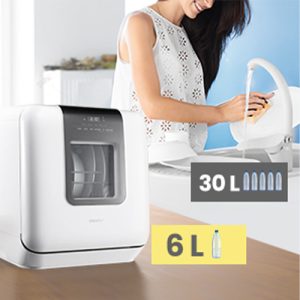
Specialty Cycles and Their Uses
When investigating a typical dishwasher’s specialty cycles, it’s critical to comprehend how these cutting-edge features might improve your dishwashing experience. This is an explanation
- Sanitize Cycle
- Purpose: Eliminates bacteria and ensures a high level of hygiene.
- Best for: Baby bottles, cutting boards, and other items needing sterilization.
- Key Benefit: Meets NSF certification standards for sanitization.
- Steam Cycle
- Purpose: Uses steam for gentle yet effective cleaning.
- Best for: Delicate dishes and glassware.
- Key Benefit: Reduces the chances of etching on glass.
- Rinse Only Cycle
- Purpose: Rinses dishes without using detergent.
- Best for: Lightly soiled dishes or prepping dishes for storage.
- Key Benefit: Saves energy and water when full cleaning isn’t necessary.
- Eco-Friendly Cycle
- Purpose: Energy-efficient cleaning.
- Best for: Environmentally conscious users.
- Key Benefit: Reduces energy and water usage.
- Quick Wash Cycle
- Purpose: Fast cleaning for lightly soiled items.
- Best for: Quick cleanups when in a rush.
- Key Benefit: Saves time without compromising on cleanliness.
These tailored cycles are available in the Criterion dishwasher, which also combines creativity and efficiency to make sure that every cycle meets unique cleaning requirements while preserving resources. These cycles offer a harmonious balance between thorough cleaning and care for your kitchenware, and when used properly, can greatly extend the life of your dishes and the dishwasher itself.
Tips for Efficient Dishwasher Use
Maximizing the efficiency of your criterion dishwasher is key to ensuring spotless dishes and longevity of the appliance. Here are some essential tips:
- Load Correctly: Position dishes so they are spaced apart, allowing water and detergent to circulate freely.
- Plates and larger items should be placed on the bottom rack.
- Smaller, more delicate items belong on the top rack.
- Pre-rinse if Necessary: While modern dishwashers are designed to handle some food residue, excessive amounts can hinder cleaning efficiency.
- Choose the Right Detergent: High-quality detergents can make a difference. Pods, powders, or gels specifically designed for criterion dishwashers enhance cleaning.
- Maintenance is Crucial: Regularly clean the dishwasher filter and check the spray arms for clogs.
- Utilize Energy-Efficient Settings: Select eco-friendly cycles for less soiled dishes to save water and energy.
By following these tips, you’ll not only ensure your dishes come out sparkling but also extend the life of your criterion dishwasher.
Common Dishwashing Myths Debunked
Even the most conscientious among us are frequently misled by a few myths when it comes to dishwashing. Being aware of these can be essential, particularly if you use the efficient and adaptable Criterion dishwasher. Let’s bust some widespread misconceptions about dishwashing:
- Myth: Pre-rinsing Dishes is Necessary
- Many believe that dishes must be pre-rinsed to get them clean. However, modern dishwashers like the criterion dishwasher are designed to handle bits of food residue. Over-rinsing can actually make the detergent less effective.
- Myth: All Dishwashers are Energy Hogs
- Not all dishwashers are created equal. The criterion dishwasher is designed for energy efficiency, using less water and electricity compared to washing dishes by hand or using older models.
- Myth: Dishwashers are All the Same
- Dishwashers vary significantly in terms of features and capabilities. A criterion dishwasher often includes specialized cycles and options that cater to different washing needs.
- Myth: Hotter Water Equals Cleaner Dishes
- While hot water is effective for cleaning, extremely high temperatures are not always necessary. Modern dishwashers like the criterion dishwasher are equipped with technology to clean effectively at lower temperatures, which also helps in saving energy.
- Myth: Dishwashers Should Only Be Run When Full
- It’s a common belief that dishwashers should only be run when completely full to save water and energy. However, overloading can result in poorly cleaned dishes. The criterion dishwasher is designed to efficiently clean dishes even in smaller loads.
- Myth: Hand Washing is More Hygienic
- Hand washing is often perceived as more sanitary. However, dishwashers, especially high-efficiency ones like the criterion dishwasher, can wash at higher temperatures, more effectively sanitizing dishes.
You can make better use of your dishwasher and make sure that your dishes are not only clean but also properly cared for in an energy-efficient and effective way by comprehending and dispelling these fallacies.
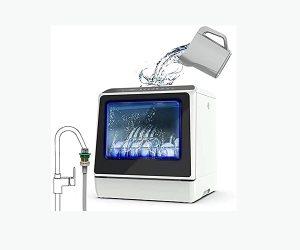
Expert Opinions
Expert perspectives are quite important when it comes to the effectiveness and efficiency of dishwashing. Their observations, which center on the criterion dishwashing, provide guidance on maximizing its potential:
- Understanding the Technology: Experts emphasize the importance of familiarizing oneself with the criterion dishwasher‘s advanced features. This knowledge is crucial for selecting the most appropriate cycle.
- Cycle Selection Based on Dish Type:
- Delicate Items: Fragile dishes like glassware or fine china should use the ‘Glass’ or ‘Delicate’ cycle to prevent damage.
- Heavily Soiled Dishes: For caked-on food, the ‘Heavy’ cycle is more effective.
- Energy Efficiency Considerations:
- The ‘Eco’ cycle is recommended for its energy-saving benefits without compromising cleaning power.
- Impact of Water Hardness: Water quality can affect the cleaning result. Soft water might require different detergent amounts or cycles compared to hard water.
- Maintenance Tips:
- Regular cleaning of the dishwasher itself is vital for optimal performance.
- Regularly check and clean the filter to prevent clogs and maintain efficiency.
- Myths vs. Reality:
- Experts debunk the myth that hand washing is always more efficient than dishwashers, especially with modern energy-efficient models like the criterion dishwasher.
- Special Features Usage:
- Utilizing special features such as ‘Sanitize’ for a thorough clean or ‘Steam’ for stuck-on food.
- Customization Options: Understanding the customization features that allow alteration of cycle times, temperature, and water usage for specific needs.
By adhering to these expert tips and understanding the capabilities of your criterion dishwasher, you can ensure your dishes are not only sparkling clean but also treated with the care they deserve.
FAQs about criterion dishwasher
- What are the standard cycles available on a Criterion dishwasher?
- Criterion dishwashers typically feature standard cycles like Normal, Heavy, Eco, Glass, and Quick Wash. Each cycle is designed for different types of dishes and soil levels.
- How energy-efficient are Criterion dishwashers?
- Criterion dishwashers are generally designed to be energy-efficient, often featuring Eco cycles that use less water and energy, contributing to lower utility bills and environmental impact.
- Can I wash delicate glassware in a Criterion dishwasher?
- Yes, most Criterion dishwashers have a specific Glass cycle, which uses lower temperatures and gentle water pressure to safely clean delicate glassware.
- Is there a quick wash option for lightly soiled dishes?
- Yes, Criterion dishwashers usually include a Quick Wash cycle, ideal for lightly soiled dishes that don’t require intensive cleaning.
- How do I maintain and clean my Criterion dishwasher?
- Regular maintenance includes cleaning the filter, checking the spray arms for clogs, and using a dishwasher cleaner to remove grease and limescale buildup.
- What should I do if my Criterion dishwasher isn’t cleaning dishes properly?
- Ensure the spray arms are not blocked, the filter is clean, and that you’re using the right detergent and rinse aid. If problems persist, consult the user manual or a professional technician.
- Are Criterion dishwashers equipped with advanced technologies like smart features or soil sensors?
- This varies by model. Some higher-end Criterion dishwashers may include advanced features like soil sensors or smart home connectivity, while basic models may not.
- How do I choose the right cycle for different types of dishes?
- Consider the soil level and type of dishware. Use Heavy for pots and pans, Normal for standard loads, Glass for delicate items, and Eco for energy-saving washes.
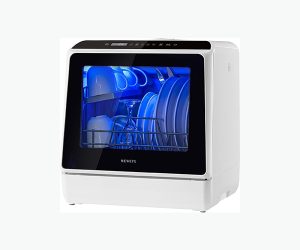
Conclusion
To sum up, the secret to getting the most out of this indispensable kitchen tool is to comprehend the several cycles and features offered by the Criterion dishwasher. The Criterion dishwasher ensures efficiency and care for your dishes by providing a variety of cycles to meet varied needs, whether you’re washing delicate china or sturdy cookware. By evaluating parameters including the type of dishes, environmental impact, and special cleaning needs, users may select the most appropriate cycle, balancing cleanliness with energy and water conservation. Expert advice and user experiences deepen our understanding by dispelling myths and offering helpful advice on upkeep and efficient use. With the help of this thorough guide, you should be able to choose the ideal dishwashing cycle with confidence, making sure that your dishes are spotless and that the performance of your dishwasher is maintained.

